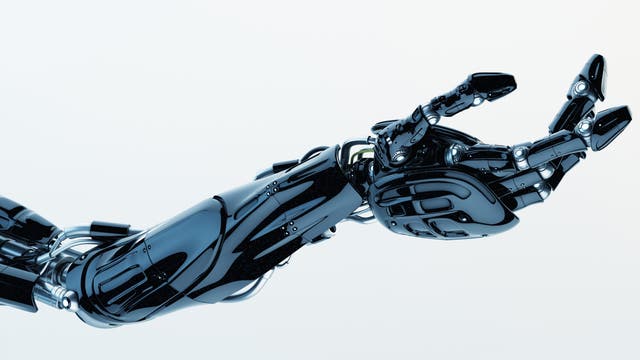Login erforderlich
Dieser Artikel ist Abonnenten mit Zugriffsrechten für diese Ausgabe frei zugänglich.
Der therapeutische Effekt von Placebos ist mittlerweile gut belegt. Doch wussten Sie, dass die Scheinmedikamente selbst dann wirken können, wenn der Patient überhaupt nicht an sie glaubt?
Herr Wright litt an Krebs im Endstadium. Die Ärzte sahen ihre Aufgabe nur noch darin, sein Leiden zu lindern. Dennoch war der Patient zuversichtlich: Er hatte von einem neuen Medikament namens Krebiozen erfahren – mit diesem wollte er unbedingt behandelt werden. 1957 schilderte der Psychologe Bruno Klopfer (1900-1971) von der University of California in Los Angeles die Krankengeschichte des Patienten in einem Artikel mit dem Titel "Psychologische Einflussgrößen bei Krebs". Seine erste Injektion erhielt Herr Wright an einem Freitag. Der behandelnde Arzt ließ einen nach Luft ringenden, fiebrigen, bettlägerigen Mann zurück. Doch schon am Montag spazierte derselbe bereits fröhlich auf der Station herum und unterhielt sich mit den Krankenschwestern. Vor allem aber waren die Tumoren binnen drei Tagen auf die Hälfte ihrer vorherigen Größe geschrumpft. In den nächsten zwei Monaten erschienen widersprüchliche Medienberichte über die Wirksamkeit von Krebiozen und verunsicherten Herrn Wright stark. Er erlitt einen Rückfall. Sein Arzt beschloss, ihn zu belügen …
Literaturtipps:
Amanzio, M., Benedetti, F.: Neuropharmacological Dissection of Placebo Analgesia: Expectation-Activated Opioid Systems Versus Conditioning-Activated Specific Subsystems. In: Journal of Neuroscience 19(1), S. 484-494, 1999.
Benedetti, F. et al.:Somatotopic Activation of Opioid Systems by Target-Directed Expectations of Analgesia. In: Journal of Neuroscience19(9), S. 3639-3648, 1999.
Chung, S. K. et al.:Revelation of a Personal Placebo Response: its Effects on Mood, Attitudes and Future Placebo Responding. In: Pain 132(3), S. 281-288, 2007.
Ernst, H.: Die Weisheit des Körpers. Kräfte der Selbstheilung. Piper, München, Zürich 1995.
Kritische Auseinandersetzung mit der rein körperorientierten Medizin
Exton, M. S. et al.: Behavioral Conditioning Prolongs Heart Allograft Survival in Rats. In: M. Transplantation Proceedings 30(5), S. 2033, 1998.
Goebel, M. U. et al.:Behavioral Conditioning of Antihistamine Effects in Patients with Allergic Rhinitis. In: Psychotherapie and Psychosomatics 77(4), S. 227-234, 2008.
Goebel, M. U. et al.:Behavioral Conditioning of Immunosuppression is Possible in Humans. In: FASEB Journal, S. 1869-1873, 2002.
Klopfer, B.: Psychological Variables in Human Cancer. In: Journal of Projective Techniques 21(4), S. 331-340, 1957.
McRae, C. et al.: Effects of Perceived Treatment on Quality of Life and Medical Outcomes in a Double-Blind Placebo Surgery Trial. In: Archives of Genetical Psychiatry 61(4), S. 412-420, 2004.
Erratum in: Archives of Genetical Psychiatry 61(6), S. 627, 2004.
Niemi, M. B. et al.:Murine Taste-Immune Associative Learning. In: Brain Behavior Immunology 20(6), S. 527-531, 2006.
Niemi, M. B. et al.:Taste-Immunosuppression Engram: Reinforcement and Extinction. In: Journal of Neuroimmunology 188(1-2), S. 74-79, 2007.
Niemi, M. B.: Neuro-Immune Associative Learning. In: Lajtha, A. (Hg.): Handbook of Neurochemistry and Molecular Neurobiology, 3rd Ed., Volume: Neuroimmunology. Springer, Berlin, Heidelberg 2008.
Pacheco-Lopez, G. et al.:Expectations and Associations that Heal: Immunomodulatory Placebo Effects and Its Neurobiology. In: Brain, Behavior, and Immunity 20, S. 430-446, 2006.
Pacheco-López, G. et al.:Neural Substrates for Behaviorally Conditioned Immunosuppression in the Rat. In: Neuroscience 25(9), S. 2330-2337, 2005.
Price, D. D. et al.:Placebo Analgesia is Accompanied by Large Reductions in Pain-Related Brain Activity in Irritable Bowel Syndrome Patients. In: Pain 127(1-2), S. 63-72, 2007.
Waber, R. L. et al.:Commercial Features of Placebo and Therapeutic Efficacy. In: Journal of the American Medical Association 299(9), S. 1016-1017, 2008.
Zubieta, J. K. et al.:Placebo Effects Mediated by Endogenous Opioid Activity on mu-Opioid Receptors. Journal of Neuroscience 25(34), S.7754-7762, 2005.
Amanzio, M., Benedetti, F.: Neuropharmacological Dissection of Placebo Analgesia: Expectation-Activated Opioid Systems Versus Conditioning-Activated Specific Subsystems. In: Journal of Neuroscience 19(1), S. 484-494, 1999.
Benedetti, F. et al.:Somatotopic Activation of Opioid Systems by Target-Directed Expectations of Analgesia. In: Journal of Neuroscience19(9), S. 3639-3648, 1999.
Chung, S. K. et al.:Revelation of a Personal Placebo Response: its Effects on Mood, Attitudes and Future Placebo Responding. In: Pain 132(3), S. 281-288, 2007.
Ernst, H.: Die Weisheit des Körpers. Kräfte der Selbstheilung. Piper, München, Zürich 1995.
Kritische Auseinandersetzung mit der rein körperorientierten Medizin
Exton, M. S. et al.: Behavioral Conditioning Prolongs Heart Allograft Survival in Rats. In: M. Transplantation Proceedings 30(5), S. 2033, 1998.
Goebel, M. U. et al.:Behavioral Conditioning of Antihistamine Effects in Patients with Allergic Rhinitis. In: Psychotherapie and Psychosomatics 77(4), S. 227-234, 2008.
Goebel, M. U. et al.:Behavioral Conditioning of Immunosuppression is Possible in Humans. In: FASEB Journal, S. 1869-1873, 2002.
Klopfer, B.: Psychological Variables in Human Cancer. In: Journal of Projective Techniques 21(4), S. 331-340, 1957.
McRae, C. et al.: Effects of Perceived Treatment on Quality of Life and Medical Outcomes in a Double-Blind Placebo Surgery Trial. In: Archives of Genetical Psychiatry 61(4), S. 412-420, 2004.
Erratum in: Archives of Genetical Psychiatry 61(6), S. 627, 2004.
Niemi, M. B. et al.:Murine Taste-Immune Associative Learning. In: Brain Behavior Immunology 20(6), S. 527-531, 2006.
Niemi, M. B. et al.:Taste-Immunosuppression Engram: Reinforcement and Extinction. In: Journal of Neuroimmunology 188(1-2), S. 74-79, 2007.
Niemi, M. B.: Neuro-Immune Associative Learning. In: Lajtha, A. (Hg.): Handbook of Neurochemistry and Molecular Neurobiology, 3rd Ed., Volume: Neuroimmunology. Springer, Berlin, Heidelberg 2008.
Pacheco-Lopez, G. et al.:Expectations and Associations that Heal: Immunomodulatory Placebo Effects and Its Neurobiology. In: Brain, Behavior, and Immunity 20, S. 430-446, 2006.
Pacheco-López, G. et al.:Neural Substrates for Behaviorally Conditioned Immunosuppression in the Rat. In: Neuroscience 25(9), S. 2330-2337, 2005.
Price, D. D. et al.:Placebo Analgesia is Accompanied by Large Reductions in Pain-Related Brain Activity in Irritable Bowel Syndrome Patients. In: Pain 127(1-2), S. 63-72, 2007.
Waber, R. L. et al.:Commercial Features of Placebo and Therapeutic Efficacy. In: Journal of the American Medical Association 299(9), S. 1016-1017, 2008.
Zubieta, J. K. et al.:Placebo Effects Mediated by Endogenous Opioid Activity on mu-Opioid Receptors. Journal of Neuroscience 25(34), S.7754-7762, 2005.







Schreiben Sie uns!
Beitrag schreiben